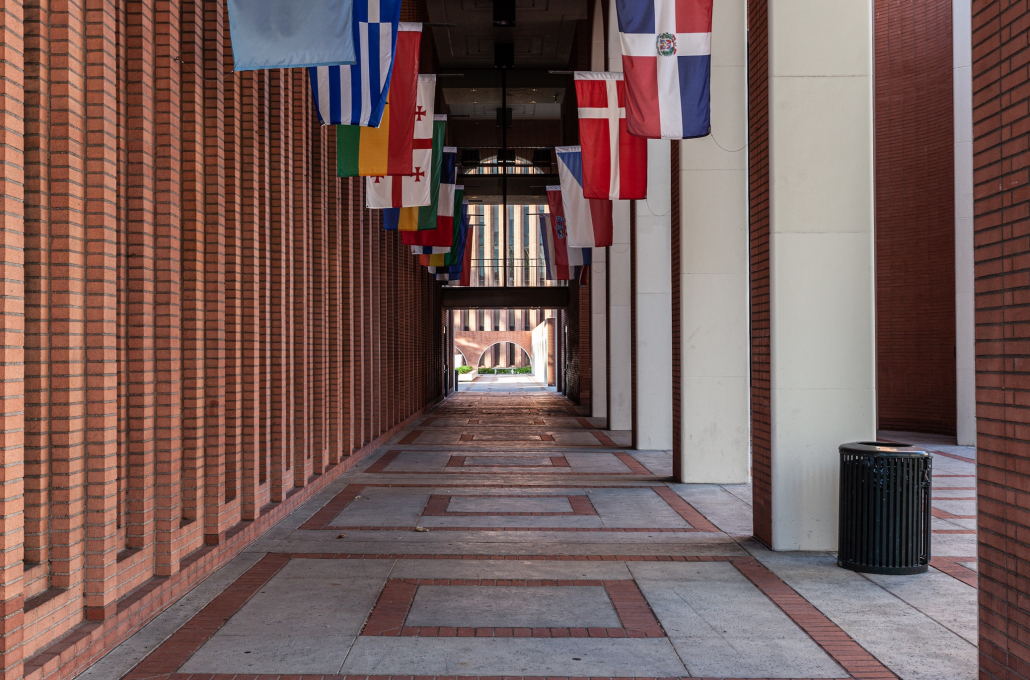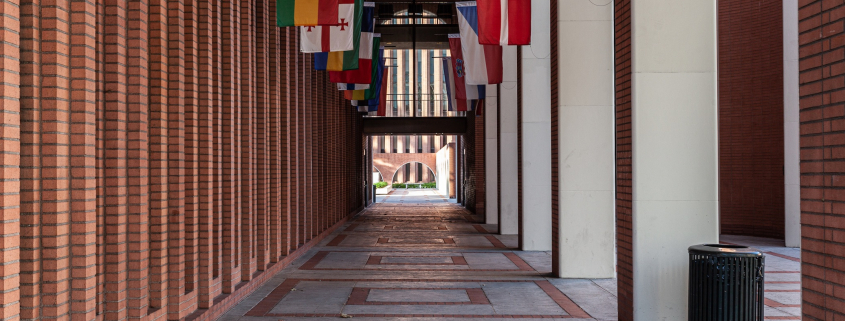Students reflect on coronavirus impacts for study abroad programs

Thomas Reilly’s love for the French language drew him to Paris, France. Both of his grandparents speak French and, once he began studying the language, he fell in love with the idea of traveling to France and learning more about the language and culture. Now in Paris through USC’s study abroad program, Reilly lives with a host family and spends his time studying with other USC students and exploring the city.
This school year marks the first time students are leaving the country and spending their semesters abroad since the coronavirus pandemic. Each school at USC hosts a plethora of study abroad opportunities in countries across the world that have been called off since March 2020.
Many students are studying abroad again after losing several semesters of in-person school to the pandemic.
Reilly, a sophomore majoring in aerospace engineering and French, left for Paris in January. Because of the engineering curriculum’s restrictiveness, this was the only semester he could spend abroad, despite only attending one semester in person at USC.
“While I had the opportunity in college to do something that’s kind of unrelated to my major, I really wanted to take advantage of it because I think the value of experiencing things outside of our chosen field is often under-appreciated,” Reilly said. “When I have the chance to experience something new and different, I want to take advantage of it.”
Although coronavirus restrictions have made it difficult to meet people, Reilly said his homestay has been a great way to be exposed to the country’s lifestyle and culture firsthand, rather than living in an apartment with other students.
“Even though I’ve missed out on 25% of my college experience, growing up in America and in the States, for me, personally, I haven’t had a ton of cultural exposure to places outside of America,” Reilly said. “I just decided that I felt that going to a new country living somewhere completely different from where I grew up and meeting people coming from completely different backgrounds is more important than spending a few extra months on campus.”
Like Reilly, Ava Brand, a junior majoring in journalism, is spending her spring semester abroad through the Annenberg School for Communication and Journalism in Rome.
Leading up to her departure, the Annenberg Rome group was uncertain if they would be able to leave. Some programs, such as Australia and New Zealand, were ultimately canceled because of the coronavirus this semester. Brand said she felt confident that they would leave a week before their departure when it had yet to be canceled.
“We had a group chat and then in December, people kind of started getting concerned,” Brand said. “We were registered for classes and then they told us to register at USC, so then people started to get a little more worried.”
Brand now lives in an apartment with several other Annenberg students studying abroad. In between classes, Brand said she spends her time exploring, trying new food and traveling around the country. The only main limitation she has faced as a result of coronavirus is the inability to leave the country, but restrictions in Europe have lifted this month in some countries.
“I feel like I’m getting the same experience that I would have gotten without COVID, but I guess it just adds a unique layer to the experience,” Brand said.
Many students at USC chose to give up another semester of on campus instruction in hopes of getting more out of their college experience. Bianca Bueno, a junior majoring in journalism, chose to study abroad in hopes of broadening her horizons and cultural immersions.
“There were a lot of restrictions that weren’t still standing in the U.S. so it was hard to adjust to that and it didn’t really allow me to travel outside of Italy for the whole first month but in reality, it was kind of a silver lining,” Bueno said. “It has actually allowed me to enjoy Italy as a country and be able to experience these places on a more local level and not such a touristic level.”

